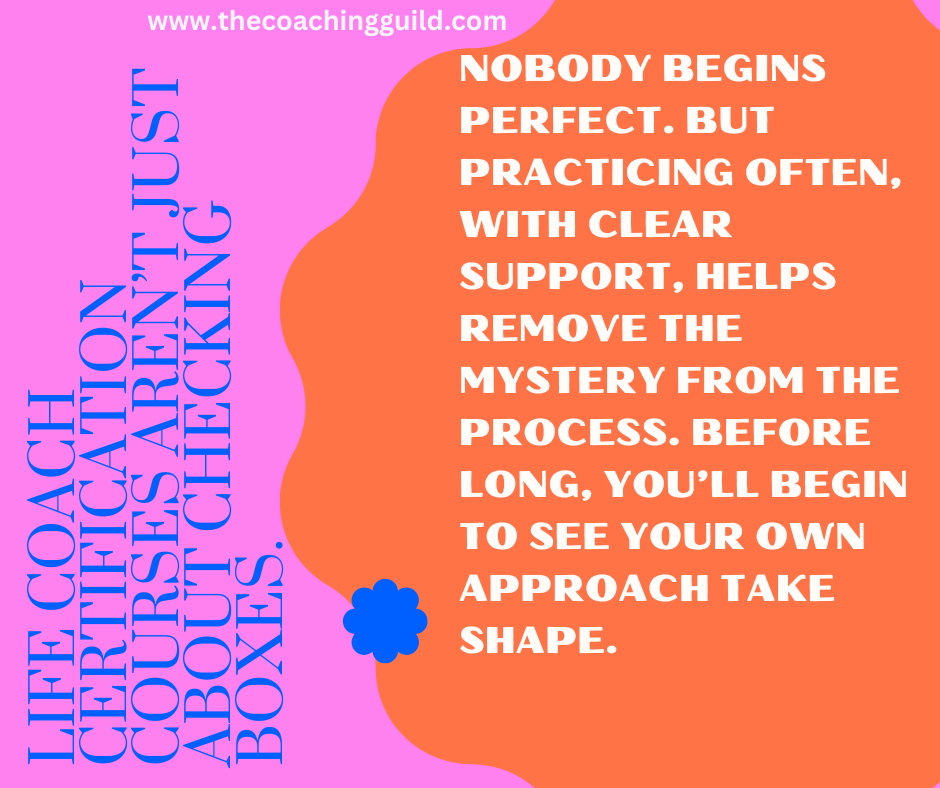Hustle, flow, and showing up for your business in coaching
Becoming a coach is not a get rich quick program
I am going to drop the most unpopular opinion in the coaching industry.
You are going to have to work to build a client base.
Coaching is not a get-rich-quick program.
It will take more of your time than you want it to.
Too many coaches fail. They fail because they've been led to believe it is possible to build a coaching practice from scratch on a few hours a week and some positive vibes.
There is this weird conversation in our coaching universe around effort as if effort is bad. Many people come to coaching in a second or third career as refugees from other professions where they were painfully overworked. Working for yourself and setting your own hours sounds like a dream, especially if the hours you want to work are an hour, three days a week, and then a lot of scrolling the social media feeds pretending you're doing something productive.
That kind of headspace creates what I like to call coaching hobbyists.
These coaches will spend six months getting a website up and almost no time working on building a business. Playing on Facebook and chatting with your coach buddies is not working your marketing plan (assuming you even have one). No one wants to hear they failed because they didn't actually work on building a practice, but it happens too often.
Usually, when a coach fails, the coach in question will say they gave it everything they had and don't know why it didn't work. Probably what they mean is they spent money they didn't have on marketing programs and then did not implement what they learned consistently enough.
News flash: The most amazing post ever, with expertly crafted copywriting, that you share once or twice on FB, with an email or two, is probably not enough.
I have seen too many coaches create life-changing products or programs who look at me like I am speaking mandarin when I ask them how they plan to sell it. Most people do not have a plan. Many don't want a plan because they like the feeling of being in freefall. They may not even realize it's a freefall because they confuse it with free time.
Side note - I have a friend building her real estate business right now. Her business is doing really well. She got her license at the beginning of the year. For the first six months, she had no clients, not one. She sold nothing. That did not stop her from working on her business five hours a day for five days a week. At twenty-five hours a week for six months, she built a business that will make more money this year than she did at her 60+ hour a week corporate job last year.
When I tell a new coach five hours a day should do it, many of them roll their eyes to the back of their head like I am asking them to run a marathon they didn't train for.
Look, I do not believe in hustle culture.
I do not think you should quit a career that burned you out, just to force yourself to work even harder.
Boss babe bullshit is mostly about looking busy and pretending to be a lifestyle influencer. That is not building a coaching practice.
You can have ease and flow in your business without taking a nosedive into hustle BUT you won't have a business if you don't market, probably more than you want to.
I spoke with a woman last week who wanted to join the next cohort at The Coaching Guild. She was all fired up and ready to go. Last year she spent more than 20k on training programs, most of them related to marketing. When we spoke, she told me she had only coached three clients in the last fourteen months. One of them signed up for her signature 4k three-month package. She was positive our program was what she needed to get her business off the ground.
Also, in the last fourteen months, she's gone on four amazing vacations totaling ten weeks of international travel. She had taken most of the summer off to reset her vibe. She spends her mornings at her health club, chatting with her friends and watching her daughter play tennis.
She'd just finished a six-month mastermind program that cost her more than 10k. Her marketing coach told her she needed to examine her beliefs around worthiness.
I did not accept her application.
She doesn't need another training program.
She needs to show up for herself and her business.
For the record, she knows I am sharing this story. She has agreed to create a schedule for herself and her business and work it for six months before she takes any other training. If she does, I don't think she'll need another certification program.
At The Coaching Guild, we are always going to tell you the truth.
The truth about building a business is both more challenging AND easier than you probably think it will be. That said, plenty of programs will be happy to take your money if you're hoping clients will drop out of the sky or banking on riches that you meditated in from the mountaintop - it just won't be us.
The Coaching Guild teaches an entire module on marketing. We weave marketing in through our curriculum. We hold eachother accountable when it's necessary. Our plan is no coach to be left behind, but in the end, it will be up to you.
The Coaching Guild is a coach training program specifically designed to nurture dreamers, artists, creatives, outsiders, rebels, and good troublemakers. It is a multi-instructor, multi-disciplinary approach to training that prioritizes learning innovative foundational coaching skills and marketing training.
Our next cohort starts in a couple of weeks.
If you want to create more money and FREEDOM in your life, maybe you should join us.


